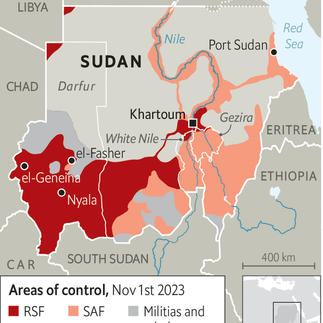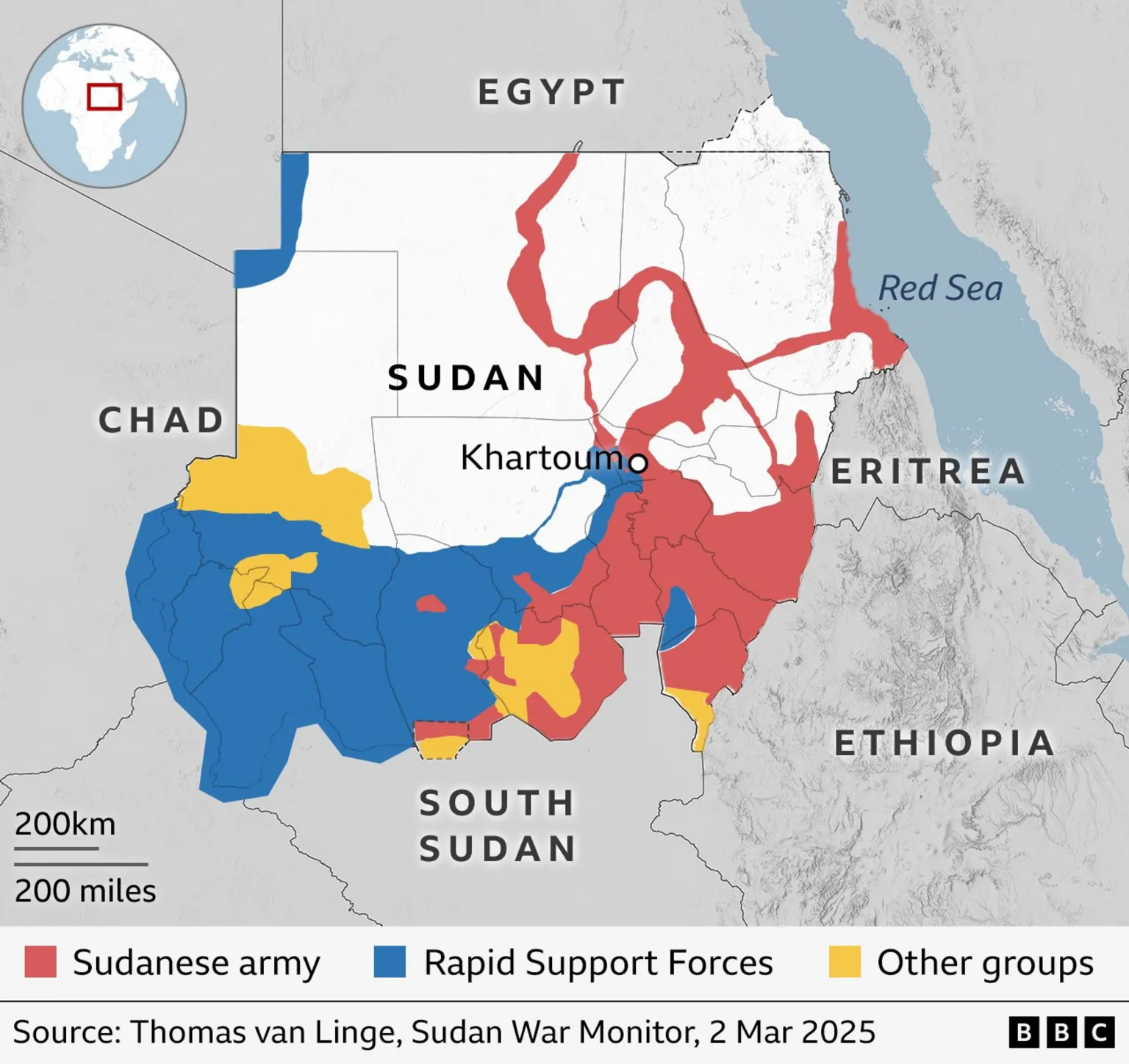The most brutal war happening now is in Sudan. What is going on?
- Sebastian Palacios.

- Mar 26
- 3 min read
According to the UN, the most devastating conflict in the last decade has been the civil war in Sudan, the third-largest country in Africa with 46 million inhabitants. The population of Sudan is predominantly Muslim, specially in the north, with Christian minorities in the south and west of the country. The war, which started in 2023 has claimed more than 150,000 lives, and today more than 25 million Sudanese people need food aid, while about 12 million people have been forced to flee their homes.
One side of the conflict is led by the country's official leader, General Abdel Fattah al-Burhan, with around 300,000 soldiers of the regular army, and the other is a militia, called the Rapid Support Forces (RSF) that was created in 2013 to suppress a rebel movement in the western Darfur region where they were accused of ethnic cleansing against the region's non-Arabic population. The RSF is led by General Mohamed Hamdan Dagalo, and it currently has 100,000 fighters under his command.
In 1956, the UK retreated completely from the territories it controlled along the Nile River, which resulted in Sudan gaining its independence. But, differences in language, religion, and political values resulted in a long civil war between the Islamic North and the Christian South. Then, between 1989 and 2019, Sudan suffered a 30-year-long military and Islamic dictatorship led by Omar al-Bashir, who was responsible for massive tortures, persecution of minorities, hosted Bin Laden in 1996, and waged the brutal war in the Darfur region. During his rule, the regime killed around 400,000 people, and the country was subject to heavy international sanctions. The ethnic tensions eventually led to the creation of South Sudan as a new country in 2011, which kept 75% of the oil reserves.
Protests erupted in 2018, demanding Bashir's resignation, which resulted in a coup d'état in April 2019 ending with Bashir's imprisonment. As a result, a joint military-civilian government was established, but it was violently overthrown in October 2021 by current president, General Burhan, and his now rival, Dagalo, who served as his main Deputy. Both agreed to make the country transition into a more secular and civilian government, but this hasn't been successful.
Both sides accused each other of not respecting their pact about including the 100,000-strong RSF into the army, and defining who would lead the new government. Both generals wanted to hang on to their positions of power, unwilling to lose wealth and influence. There have been several rounds of peace talks in Saudi Arabia and Bahrain, but all have failed.
Officially, the western powers are neutral in this war, while UN experts say the RSF has been backed by neighbouring African states including Chad, Libya and South Sudan, while the United Arab Emirates (UAE) has been accused of arming the RSF. On the other side, Iran and Russia have backed the government because both depend on the trade coming from Port Sudan, controlled by the forces of Burhan. Also, Moscow is eager to implement a 2019 deal with Sudan to establish a Russian Red Sea naval base near Port Sudan capable of accommodating up to four ships at a time, including those with a nuclear power plant.
This week, the capital of Sudan Khartoum was retaken by the regular army led by Burhan. The RSF had controlled most of Khartoum since the war began in April 2023. Both sides have committed war crimes, but the RSF have committed more acts of this nature and have also been involved in genocide.















Comentários